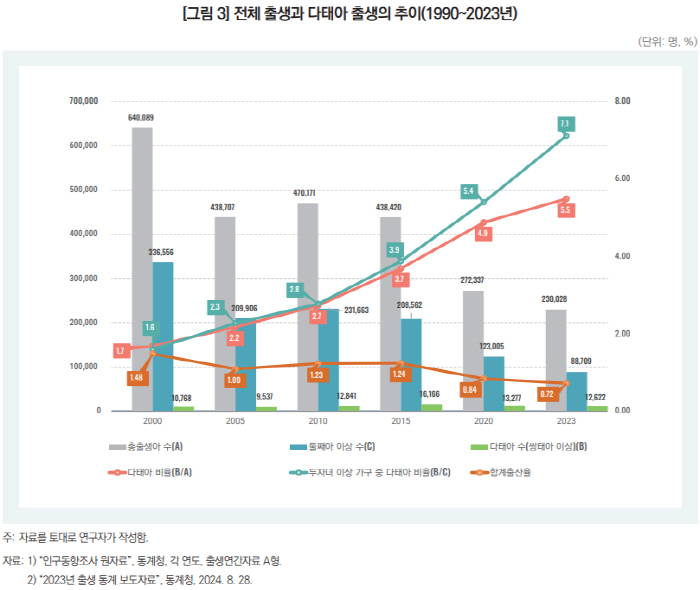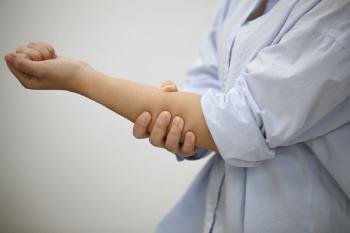The birth rate of high-order multiple births of triplets or more is 0.59 cases per 1,000 cases, ranking first in the world
Aug 25, 2025
|
According to the report 'World Multifetal Birth Rate Data (HMBD)' published by the Korea Institute for Health and Social Affairs on the 25th, Korea's total fertility rate is the lowest in the world, while the multifetal fertility rate is continuously increasing due to the increase in infertility procedures.
Bae Hye-won, the research director, said, `Considering the rising birth age and the development of medical assisted reproductive techniques (MARs), the proportion of multiple births (the proportion of multiple births among total births) is expected to be maintained or increased for the time being, considering the continuous increase in the number of infertility procedures (146,354 cases in 2019 → 200,000 cases in 2022) and the number of patients implemented in Korea (123,322 cases in 2019 → 136,905 cases in 2022)."
The study found that Korea's multiple birth rate was 26.9 cases per 1,000 births in 2023, the second highest level after Greece (29.5 cases) among countries included in the World Human Multiple Births Database (HMBD). The triplet or higher-order multiple-fetal birth rate was 0.59 cases in 2023, the highest among the countries included in the HMBD, and approximately three times higher than the average (0.21 cases) in the HMBD countries.
Multifetal pregnancy is classified as a high-risk pregnancy for both the mother and fetus. Multifetal mothers have about two to three times higher risk of complications such as pregnancy addiction and gestational diabetes than single-term mothers, and the rate of premature birth and underweight is 50-60%. Even after birth, 73% of multiple fetuses receive neonatal intensive care unit (NICU) treatment, and medical expenses are about four to five times higher than single fetuses. In addition, it was found that about 70% of parents with multiple births experience severe psycho-emotional difficulties during 2 years of age, and 30.2% of mothers with multiple births experience high levels of depression.
Bae Hye-won, a researcher specializing in research, emphasized that "the risk of pregnancy and childbirth is very high due to the aging of parents with multiple births, premature birth of multiple births, and the rapid increase in multiple births, and it contains multidimensional risk factors such as health problems and care burdens even after childbirth, so continuous monitoring and policy considerations from a mid- to long-term perspective are needed." Subsequently, statistics related to multiple births in Korea remain in the grasp of the basic status, and there is almost no data that can comprehensively grasp the status of parenting, care environment, and policy demand."It is necessary to understand the actual situation through empirical data construction and policy research for multi-fetal households, and to discuss policy adjustment and institutionalization to build continuous and integrated health and welfare services based on policy demand."
This article was translated by Naver AI translator.














